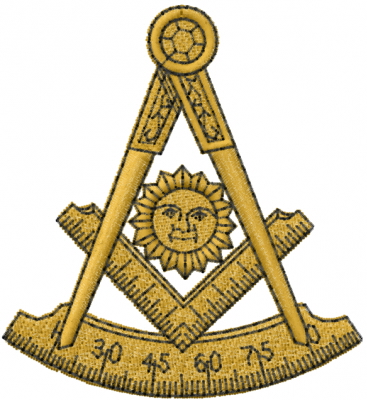by Midnight Freemason Contributor
Bro. Adam Thayer
 Brethren, as the year is drawing to a close, I, like many of you, find myself reflecting upon the challenges and achievements of the past year and turning an eager eye forward to see what the new year will bring. While my year has been full of many joys, there have been many trials that I did not believe I was prepared to handle and obstacles that seemed impossible to overcome. I feel relatively safe in saying that when you take the final tally of your year’s events, you will find a similar sentiment.
Brethren, as the year is drawing to a close, I, like many of you, find myself reflecting upon the challenges and achievements of the past year and turning an eager eye forward to see what the new year will bring. While my year has been full of many joys, there have been many trials that I did not believe I was prepared to handle and obstacles that seemed impossible to overcome. I feel relatively safe in saying that when you take the final tally of your year’s events, you will find a similar sentiment.
While I could write pages and pages detailing all of the events of the year, it would only be a useful study for me and you wouldn’t find most of it to be interesting. I had successes and I have had failures; I lost a job and found a better one; I had a child, and haven’t slept since. What I would like to talk to you about instead is the importance of reflecting.
When it comes to education (and what is Freemasonry if not a system of education, albeit a peculiar one), reflection is the one step which has the most powerful lessons, and one that many people overlook. The scientific method places it as a step of high importance: analyze your data, then reflect on what you’ve learned from it. John Dewey stated “We do not learn from experience, we learn from reflecting on experience” and Jack Mezirow called reflection one of the defining conditions of being human.
For many years, the Masonic initiate spent time in a Chamber of Reflection, to analyze himself before being brought into our gentle order. While this practice has died away in most modern lodges, I would like to see a resurgence in the function, but with one change: let the chamber be open to all brothers to reflect upon their lives, and how Masonry has changed them. This period of meditation could be supremely useful for many of us, and should be at least available for those who are interested. (For more information on the controversy, be sure to read the excellent article by Bs. Brian Schimian and Robert Johnson located at here.
I have made many (many, many) stupid mistakes in my life, and the only saving grace I can claim is that I have always endeavored to learn from them and sought to make new stupid mistakes. Every regret and sorrow has molded me into someone that I hope is a better person than I was when I started this journey.
Many sports teams use reflection to improve their scores; they will look at footage from previous games to identify those things that they did well, and look for areas they can improve. In sales, we were taught to spend time each day analyzing what went right and wrong in each meeting, and identify those things that led to us making sales.
True reflection occurs best by letting the mind wander; you can guide it to a point, but you need to allow yourself to relax enough to find functional connections that you may have missed. This can be very easy for some of us (my mind has wandered off multiple times just while writing this), and very difficult for others. The important thing is to try to make connections between your actions and the outcomes, the cause and the effects. It is very easy to make false connections here, so wanderer beware! The fact that you seem to see a yellow car every time it rains does not, in fact, mean that yellow cars cause rain!
Even if you don’t make reflection part of your daily routine, I do hope you will use it during your “year-end inventory”, in the hopes that next year will be more successful for you than this past year.
For those of you who, like myself, have had a very painful year, I hope you can find comfort in the words of Ovid: Perfer et obdura, dolor hic tibi proderit olim. (Be patient and tough; someday this pain will be useful to you.) It is often difficult to identify the positive growth that can come from negative situations, however I have found (at least, in my life) that I’ve grown more during painful periods than during periods of ease. In fact, I see my life as a tree; left to grow wild, it will form a mess, technically functional but far from ideal. When pruned through discomfort and hardships, it is able to be shaped by the master gardener into a shape that is both functional AND aesthetically pleasing. It is my belief, therefore, that I will leave behind an incredibly beautiful life.
As this is my last chance to speak to you this year (and if you’re reading this next year, shame on you!), please let me take this opportunity to thank you for lending me your eyes, your brains, and your hearts over the past year. I love each and every one of you, and there is absolutely nothing you can do about it!
~AT

No comments:
Post a Comment
Note: Only a member of this blog may post a comment.